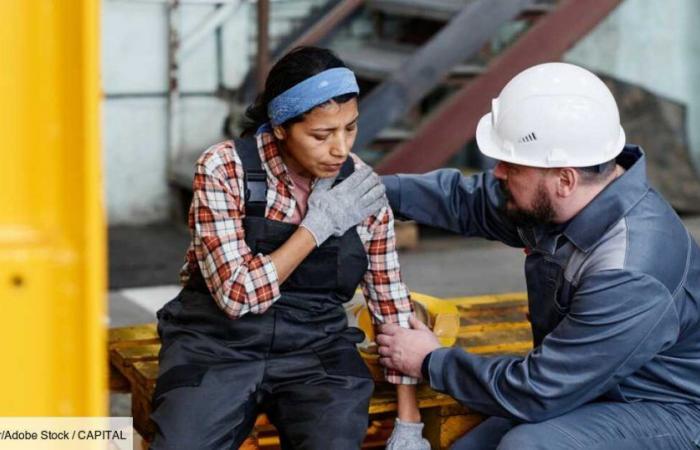
© pressmaster/Adobe Stock
The observation is more than alarming. In 2023, almost all companies (97%, compared to 83% a year earlier) have declared a disaster affecting an employee at least once (work accidentcommuting accident or occupational illness), according to the latest annual barometer* from the audit and consulting firm BDO, carried out in partnership with OpinionWay and published Thursday October 3. “The claims rate is extremely high”reported Xavier Bontoux, associate lawyer and general director of BDO RH, during a press conference presenting the barometer this Thursday.
In detail, 69% of companies surveyed by OpinionWay and BDO declared a work accident in 2023, 24% an occupational illness and 25% a commuting accident. At the same time, only 9% of the structures surveyed were faced with sick leave linked to psychosocial risks (stress, burn-outdepression). This is, unsurprisingly, much less than in 2020, at the height of the health crisis, a year in which one in two companies was faced with this type of shutdown.
>> Our service – Save money by testing our Health Insurance comparator
A glaring lack of investment in the prevention of workplace accidents
But the overall situation remains worrying. “Our system is extremely severe, repressive and costly for accident-causing companies”believes Xavier Bontoux. Understand: employers whose fault is actually recognized in the event of a work accident or occupational disease can be very heavily punished. Convictions for inexcusable misconduct (when the employer was or should have been aware of the danger to which the employee was exposed and did not take the necessary measures to prevent it) can thus “cost several hundred thousand euros, or even exceed a million euros sometimes”illustrates the expert, specialist in social law. But in reality, this system is “ineffective”he judges. Despite these heavy sanctions, «there are no fewer workplace accidents and France still occupies third place among European countries facing this scourge.. Result : “It is still as risky to work in France today”tranche Xavier Bontoux.
After-effects following an accident or illness: under what conditions can an employee be compensated?
For what ? Quite simply because at the same time, “France is one of the countries that invests the least in prevention”he continues. Although this is an obligation for them, 6 companies surveyed by BDO out of 10 declare that they do not have a prevention agreement. “The question of using the surplus from the AT/MP branch (the work accident-occupational illness branch of Health Insurance, Editor’s note) to reduce claims must therefore be asked”insists Xavier Bontoux.
According to data from the Confederation of Small and Medium-Sized Enterprises included by BDO in its barometer, this branch actually showed a surplus of 1.4 billion euros in 2023. It would be 800 million euros this year. . “This money could be invested in the purchase of personal protective equipment. It could also be used to finance a public prevention school aimed at training employers but also employees wishing to undertake a mandate within the social and economic committee of their business”imagines the associate lawyer and general director of BDO RH.
* The survey was conducted for BDO by OpinionWay. From June 10 to 28, 2024, a sample of 400 companies with more than 50 employees was questioned by telephone interview on their consolidated data for 2023.





